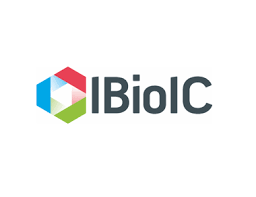Bioeconomy Cluster Builder
Last Updated: 02 Jun 2023
Contents
Support provided by
 IBioIC
IBioIC
What does this involve?
The Bioeconomy Cluster Builder (BCB) supports the development of new products and services using biotechnology. New and creative applications of biotechnology can support the development of sustainable, bio-based products and services. This can help businesses improve their environmental performance, increase efficiency and create value from waste.
The BCB offers the following support to Scottish small and medium-sized enterprises (SMEs):
- facilitating connections between business, academia and beyond
- strategic innovation support and guidance, for example through the KTN Innovation Canvas
- raising awareness of their products and services
- networking events and workshops
- help to access funding and investment
The BCB is a collaboration between the Industrial Biotechnology Innovation Centre (IBioIC) and Innovate UK KTN. They deliver targeted events and provide innovation support and funding guidance to help companies use biotechnology to develop their products and services.
Am I eligible?
The BCB offers support to Scottish micro-companies and small and medium-sized enterprises (SMEs) looking to develop products or services that use biotechnology. The project is designed to encourage the use of biotechnology in non-traditional sectors such as textiles, construction and food and drink.
What does this cost?
The service is free of charge.
Who is this for?
Scottish micro-companies and small and medium-sized enterprises (SMEs).
Important information
Biotechnology uses the metabolic processes of plants, fungi, algae and micro-organisms to create useful products and services. Traditional examples include the use of yeasts for baking and brewing, but biotechnology processes now produce a diverse range of high-value products including biofuels, bioplastics and pharmaceuticals.
The bioeconomy uses biotechnology and renewable biological resources to produce things like sustainable fuels, plastics, livestock feed and medicines. It encompasses an ever-expanding network of diverse stakeholders from industry, academia and beyond. Feedstocks for the bioeconomy come from a range of sources, including agriculture, aquaculture, brewing and distilling co-products, forestry, food processing, municipal solid waste and carbon dioxide.
Next steps
Visit the Bioeconomy Cluster Builder website for more information and to get involved.
Support provided by
 IBioIC
IBioIC
